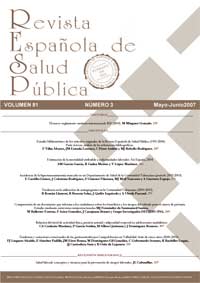Recommendations on the ethical aspects of specimen collections and human biobanks for biomedical research purposes
Abstract
The collecting and storing of human biospecimens and associated data are a historical fact in medicine, but the biobank is a very recent concept. The advent of new technologies making it possible to store all types of specimens, including cells capable of staying alive outside the human body for an indefinite length of time, and to obtain scientific data of all types, including genetic information, has opened up a whole new realm of possibilities for research. All of the above has led to complex ethical issues coming to fore concerning the specimen donors, the researchers handling the specimens and society as a whole. This document is aimed at providing some recommendations to serve as a guideline and encourage responsible deliberation among all those involved, thus contributing to societys recognition and trust in the forthrightness of the research and the solidary end purposes thereof. A total of nineteen recommendations have been drafted concerning the following aspects: Biobank organization and operation, degree of specimen identification, data management guarantees, consent for taking part in research and for the incorporation of specimens into the biobank, the right to know and the right not to know, consent for transferring specimens to third parties, specimen harvesting in deceased individuals, management of the pre-existing biospecimen collections, title to and commercialization of specimens and research findings and resulting payback benefiting the community.Downloads
Published
2008-03-14
Issue
Section
SPECIALL COLLABORATIONS

